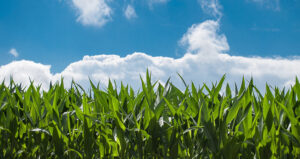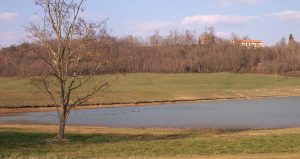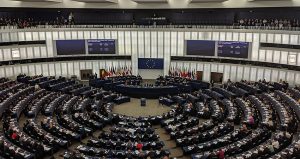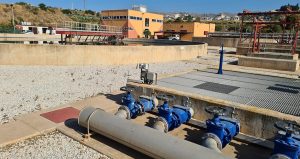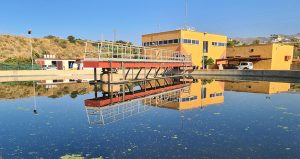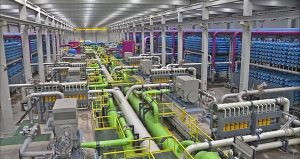European Parliament adopts plans for water reuse for agricultural irrigation
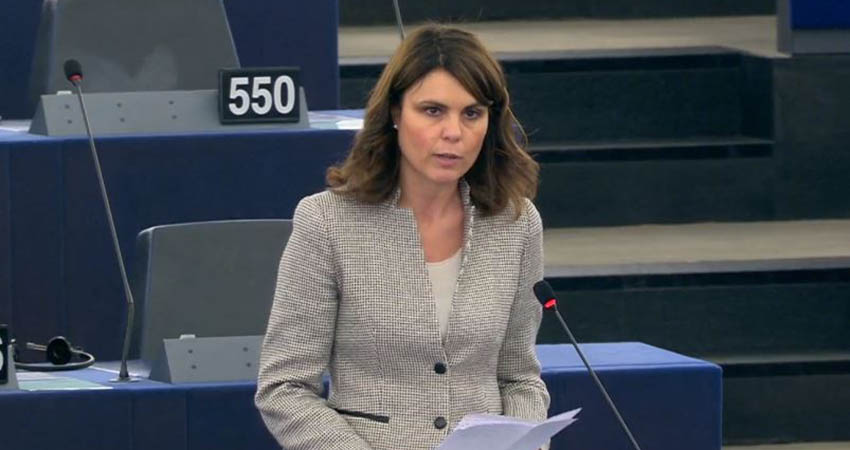
- 13 February 2019
-
Editorial Team
Share article:
Plans with the intention to facilitate the reuse of treated wastewater for agricultural irrigation were adopted by the European Parliament on Tuesday the 12th of February. The proposal defines minimum quality standards for reclaimed water for agricultural irrigation. The Plenary rejected an amendment of the ENVI-committee that holds Waste Water Treatment Plants (WWTP’s) responsible for any contamination in reclaimed water.
The draft legislation was adopted with 588 votes to 23 and 66 abstentions. Negotiations with EU ministers will start after the European Council sets its position. According to the Plenary vote operators will be responsible for the quality of reclaimed water until the point of delivery and only liable if the water does not comply with standards. Farmers need to be aware of the risks of using effluent on their crops and take adequate measures.
Permit for end user
The association of European drinking water and waste water service operators Eureau is pleased MEPs rejected the ENVI-amendment, but they still see room for improving the actual proposal. The Parliament still omits the permit for the end user. Eureau Policy Officer Bertrand Vallet explains why the ENVI-amendment could have been disastrous. “If this amendment had passed, the entire water reuse practice would have been jeopardised, as no operator would have risked producing reclaimed water under the threat of having to compensate for the pollution they are not responsible for.”
Division of costs
The European Association of Public Water Operators Aqua Publica Europea is also positive about the endorsement of the Parliament, but they state the proposal still insufficiently acknowledges the importance of coordination between all actors. “With the ‘cost-recovery’ obligation it is mandatory for water operators to recover their costs through tariffs to promote sustainable use of water. Consequently, when water reuse implies new investments, a proper coordination of the processes by competent authorities prevents an unfair and unbalanced cost transfer to households’ water bills.” According to Aqua Publica Europea the text still needs to go further in adequately distributing responsibilities.
Great potential
Rapporteur Simona Bonafè from the Italian party Senza y Peggio presented the proposal the 12th of February in Strasbourg. She declared: “We could potentially reuse 6.6 billion cubic metres of water by 2025, compared to the current 1.1 billion cubic metres per year. That would require an investment of less than 700 million euro and would enable us to reuse more than half of the current volume of water coming from EU wastewater treatment plants theoretically available for irrigation, avoiding more than 5% of direct extraction from bodies of wastes and groundwater.”
Guidelines
European Commissioner Karmenu Vella of Environment, Maritime Affairs and Fisheries presented a proposal for regulation on minimum requirements for water reuse on the 28th of May 2018. The proposal distinguishes four quality classes of reclaimed water for different purposes. The ‘A’ water quality is the best and can be used in all food crops. Even if the edible part is in direct contact with reclaimed water. B and C can be used for fruit trees and for the production of food for animals. The lowest quality water ‘D’ can only be used for non-food purposes. In the current situation Waste Water Treatment Plants have to comply to the Urban Waste Water Directive and can only provide farmers or other users with standardized effluent. Due to this Directive reclamation plants are only capable of treating for discharge.

